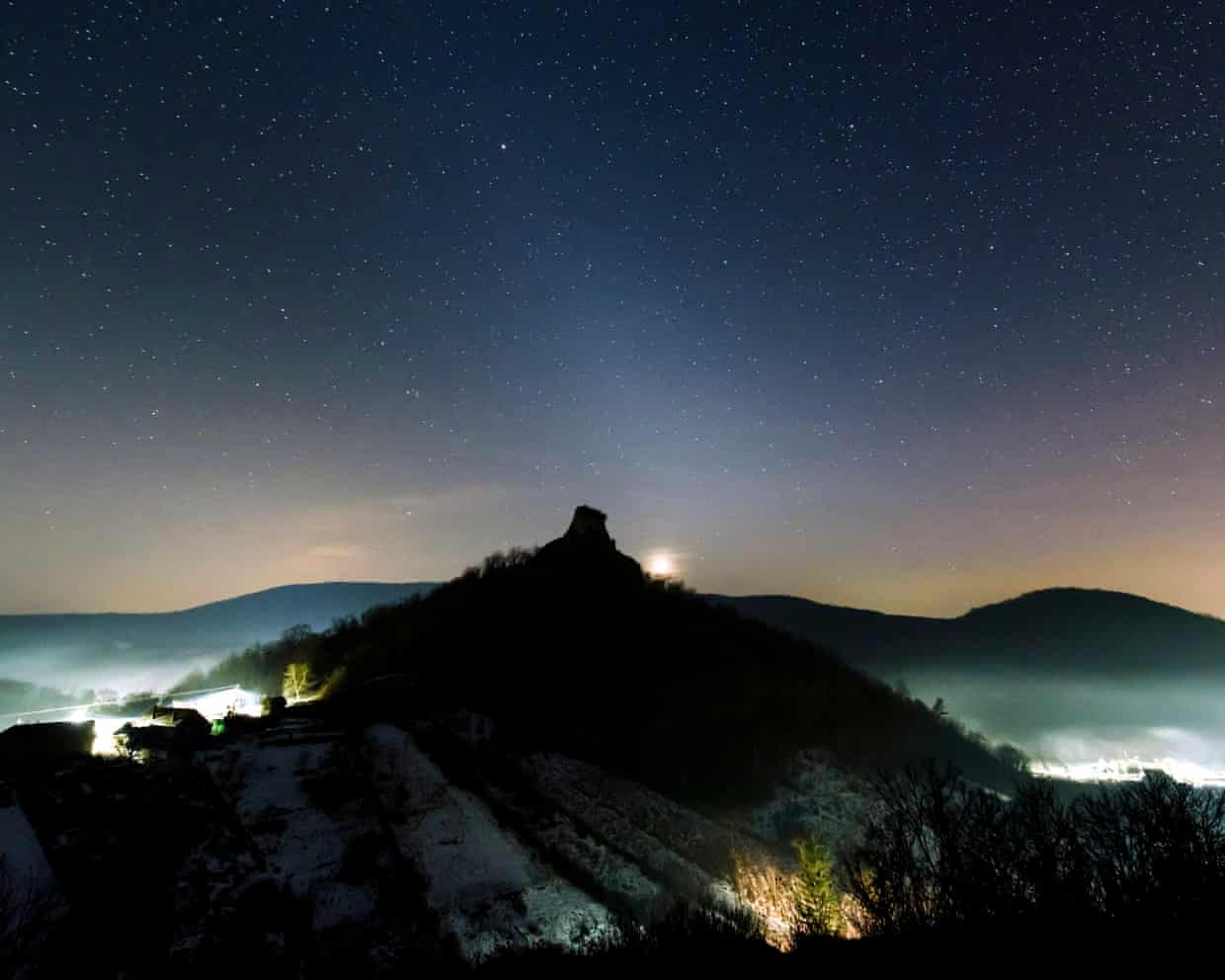Science
Skywatchers Spot Zodiacal Light This Week in Celestial Display

This week, skywatchers have the opportunity to observe the elusive phenomenon known as zodiacal light, a soft glow created by sunlight scattering off interplanetary dust in the solar system. This dust originates from comets and collisions between asteroids, forming a subtle yet captivating display in the night sky.
What to Look For
When viewed from Earth, the zodiacal light appears as a faint triangular glow stretching upwards from the horizon. The best time to witness this phenomenon is during the weeks surrounding the equinox, which took place on March 20, 2024. During this period, the plane of the solar system, referred to as the ecliptic, rises steeply into the sky, offering a prime opportunity for observation.
For those in the Northern Hemisphere, it is advisable to find the darkest location possible with a clear view of the eastern horizon. Observers should aim to begin their observations approximately one hour before dawn twilight, which translates to around 04:00 UK time. The constellations of Leo and Cancer will guide viewers to where the zodiacal light will be most visible. The glow resembles the early morning dawn but is distinguishable by its wedge-like shape.
Viewing in the Southern Hemisphere
In contrast, observers in the Southern Hemisphere can expect to see the zodiacal light about an hour after sunset. This soft wedge of light will extend upwards from the western horizon, passing through the constellations of Virgo and Libra. The appearance of the zodiacal light varies between the two hemispheres, providing a unique viewing experience depending on one’s location.
As this celestial event unfolds, enthusiasts are encouraged to take advantage of the clear skies and immerse themselves in the beauty of the universe. The zodiacal light not only serves as a reminder of the vastness of space but also highlights the intricate interactions that occur within our solar system. Whether one is a seasoned astronomer or a casual observer, this experience promises to be a memorable one.
-

 Politics4 weeks ago
Politics4 weeks agoSecwepemc First Nation Seeks Aboriginal Title Over Kamloops Area
-

 World5 months ago
World5 months agoScientists Unearth Ancient Antarctic Ice to Unlock Climate Secrets
-

 Entertainment5 months ago
Entertainment5 months agoTrump and McCormick to Announce $70 Billion Energy Investments
-

 Science5 months ago
Science5 months agoFour Astronauts Return to Earth After International Space Station Mission
-

 Lifestyle5 months ago
Lifestyle5 months agoTransLink Launches Food Truck Program to Boost Revenue in Vancouver
-

 Technology3 months ago
Technology3 months agoApple Notes Enhances Functionality with Markdown Support in macOS 26
-

 Lifestyle3 months ago
Lifestyle3 months agoManitoba’s Burger Champion Shines Again Amid Dining Innovations
-

 Top Stories2 months ago
Top Stories2 months agoUrgent Update: Fatal Crash on Highway 99 Claims Life of Pitt Meadows Man
-

 Politics4 months ago
Politics4 months agoUkrainian Tennis Star Elina Svitolina Faces Death Threats Online
-

 Sports5 months ago
Sports5 months agoSearch Underway for Missing Hunter Amid Hokkaido Bear Emergency
-

 Politics5 months ago
Politics5 months agoCarney Engages First Nations Leaders at Development Law Summit
-

 Technology5 months ago
Technology5 months agoFrosthaven Launches Early Access on July 31, 2025





















